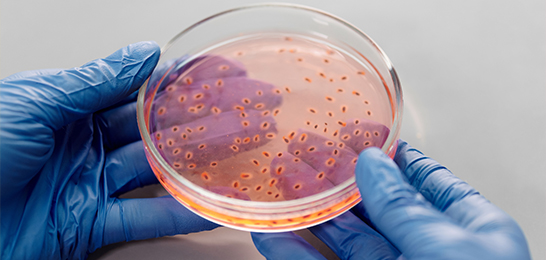Published Date: Sep 07 2023
In the intricate world of biotechnology, where science meets innovation, the process of recombinant trypsin production stands as a masterpiece of genetic engineering. This captivating process involves manipulating genes to yield a remarkable enzyme with myriad applications across diverse industries. In this blog, we embark on a journey into the world of recombinant trypsin production, uncovering its intricacies, significance, and potential breakthroughs.
Demystifying Recombinant Trypsin Production
At its heart, recombinant trypsin production is the art of creating trypsin through genetic manipulation. This begins by isolating the trypsin gene, which encodes the enzyme's blueprint. This gene is then inserted into a host organism, often bacteria or yeast, which becomes a factory for trypsin production. Through fermentation and purification processes, this organism produces trypsin in quantities that were once unattainable.
Crafting the Process: Methods of Recombinant Trypsin Production
The selection of a host organism is critical to recombinant trypsin production. Bacteria and yeast are favored due to their well-understood genetic makeup and rapid growth rates. These organisms can be genetically tailored to optimize trypsin production, providing a canvas upon which the art of genetic engineering is expressed. Fermentation is the canvas upon which recombinant trypsin production unfolds. In carefully controlled bioreactors, the host organisms multiply and express the trypsin gene. This phase requires meticulous attention to variables such as temperature, nutrient supply, and oxygen levels. Following fermentation, the masterpiece is refined through downstream processing techniques, where the trypsin is meticulously separated, purified, and shaped into its final form.
The Splendor of Advantages
Recombinant trypsin production offers a symphony of advantages. Its consistency in quality and purity surpasses traditional methods, eliminating the variability seen with animal-derived sources. Researchers and industries can rely on a standardized enzyme source, ensuring accurate and reproducible results in a range of applications. The scalability of recombinant trypsin production is a marvel in itself. The controlled fermentation process allows for the harmonization of production conditions, leading to higher yields and greater efficiency. The ability to meet increasing demands without reliance on animal sources underscores the sustainable and progressive nature of this approach. The ethical and sustainability considerations surrounding recombinant trypsin production make it a beacon of conscientious innovation. By reducing dependence on animal-derived enzymes, this method supports ethical practices while also contributing to a more sustainable and eco-friendly biotechnology landscape.
Unveiling the Applications
In the realm of bioprocessing, recombinant trypsin is a key player. Its consistent quality enhances protein production and streamlines processes, leading to higher yields and increased efficiency. This innovation is invaluable in sectors like pharmaceuticals, where the demand for bio-based products is on the rise. In the field of regenerative medicine and cell culture, recombinant trypsin showcases its gentleness and finesse. Its ability to promote cell viability during detachment nurtures advancements in stem cell research, tissue engineering, and personalized medicine, where cell integrity is paramount.
Recombinant trypsin production is a testament to the fusion of science and creativity. It illustrates the potential of genetic engineering to reshape industries and drive innovation. As technology continues to evolve, we can anticipate even more refined techniques and applications, ultimately propelling us into a future enriched by the masterful science of recombinant trypsin production. Whether in laboratories, factories, or clinics, this process is not just a scientific endeavor – it's a work of art that shapes the canvas of our future.









